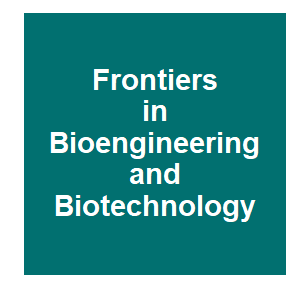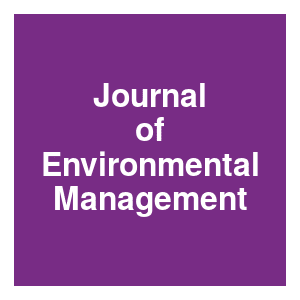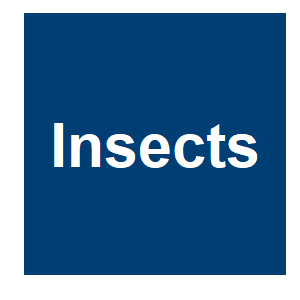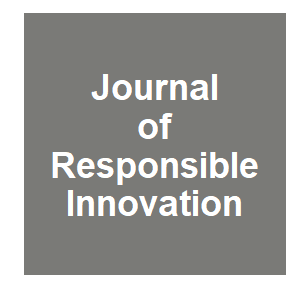
Keywords: stakeholder engagement

|
Talking About Gene Drive in Uganda: The Need for Science Communication to Underpin EngagementHartley, S., Stelmach, A., Opesen, C., Openjuru, G. L., and Neema, S., Science Communication, 2024.
Uganda may host the world’s first field trials of gene drive mosquitoes for malaria control. Global North discourses pre-suppose African publics have access to information about gene drive and are ready to make decisions about its governance. We explore assumptions about the ... Keywords: bioethics, democratic deliberation, environmental governance, gene drive synthetic, gene editing, genetic bioontrol, governance of environmental biotechnologies, stakeholder engagement |

|
African researchers committed to ending malariaAfrican Media Agency, 2024.
The need to encourage more young African girls to pursue careers in science cannot be overemphasized. Keywords: bioethics, democratic deliberation, environmental governance, gene drive synthetic, gene editing, genetic bioontrol, governance of environmental biotechnologies, stakeholder engagement |

|
Stakeholder engagement in the development of genetically modified mosquitoes for malaria control in West Africa: lessons learned from 10 years of Target Malaria’s work in MaliBakara Dicko, Souleymane Kodio, Hatouma Samoura, Fatoumata Traoré, Naima Sykes, Mouhamed Drabo, Delphine Thizy, Isabelle Coche, Benjamin Robinson, Kadiatou Sanogo, Bilkissou Yagouré, Samba Diop, Mamadou B. Coulibaly, Frontiers in Bioengineering and Biotechnology, 11. 2024.
From 2012 to 2023, the Malaria Research and Training Center (MRTC), based out of the University of Sciences, Techniques and Technologies of Bamako (USTTB), was part of the Target Malaria research consortium working towards developing novel gene drive-based tools for controlling ... Keywords: bioethics, democratic deliberation, environmental governance, gene drive synthetic, gene editing, genetic bioontrol, governance of environmental biotechnologies, stakeholder engagement |

|
Ethics of gene drive mosquitoes for malaria eliminationA. J. Roberts, McMaster University, 2022.
This thesis is concerned with presenting analyses regarding key ethical issues regarding and arising from the development and potential use of gene drive modified mosquitoes for the purpose of malaria elimination. Each of the chapters constituting this thesis offers a rigorously ... Keywords: bioethics, democratic deliberation, environmental governance, gene drive synthetic, gene editing, genetic bioontrol, governance of environmental biotechnologies, stakeholder engagement |

|
Operationalizing stakeholder engagement for gene drive research in malaria elimination in Africa-translating guidance into practiceL. Pare Toe, B. Dicko, R. Linga, N. Barry, M. Drabo, N. Sykes and D. Thizy, Malaria Journal, 21:225. 2022.
Gene drive mosquitoes are increasingly considered a potential transformational tool for vector control of malaria mosquitoes. As part of efforts to promote responsible research in this field, a number of guidance documents have been published by the World Health Organization, ... Keywords: bioethics, democratic deliberation, environmental governance, gene drive synthetic, gene editing, genetic bioontrol, governance of environmental biotechnologies, stakeholder engagement |

|
Governing Gene Drive Technologies: A Qualitative Interview StudyN. de Graeff, K. R. Jongsma, J. E. Lunshof and A. L. Bredenoord, AJOB Empirical Bioethics, 13:107-124. 2022.
Gene drive technologies (GDTs) bias the inheritance of a genetic element within a population of non-human organisms, promoting its progressive spread across this population. If successful, GDTs may be used to counter intractable problems such as vector-borne diseases. A key issue ... Keywords: bioethics, democratic deliberation, environmental governance, gene drive synthetic, gene editing, genetic bioontrol, governance of environmental biotechnologies, stakeholder engagement |

|
Stakeholder engagement to inform the risk assessment and governance of gene drive technology to manage spotted-wing drosophilaA. E. Kokotovich, S. K. Barnhill-Dilling, J. E. Elsensohn, R. Li, J. A. Delborne and H. Burrack, Journal of Environmental Management, 307:114480. 2022.
Emerging biotechnologies, such as gene drive technology, are increasingly being proposed to manage a variety of pests and invasive species. As one method of genetic biocontrol, gene drive technology is currently being developed to manage the invasive agricultural pest ... Keywords: bioethics, democratic deliberation, environmental governance, gene drive synthetic, gene editing, genetic bioontrol, governance of environmental biotechnologies, stakeholder engagement |

|
Determinants of stakeholders’ attitudes and intentions toward supporting the use of Wolbachia-infected Aedes mosquitoes for dengue controlA. F. Arham, L. Amin, M. A. C. Mustapa, Z. Mahadi, M. Yaacob and M. Ibrahim, BMC Public Health, 21:2314. 2021.
BACKGROUND: A recent approach in controlling dengue is by using the Wolbachia-infected Aedes mosquito (WiAM). The approach has been reported to be more effective than traditional methods, such as fogging. Therefore, it is imperative to assess the factors predicting its acceptance ... Keywords: bioethics, democratic deliberation, environmental governance, gene drive synthetic, gene editing, genetic bioontrol, governance of environmental biotechnologies, stakeholder engagement |

|
Malaria vector control tools in emergency settings: What do experts think? Results from a DELPHI surveyC. Boete, S. Burza, E. Lasry, S. Moriana and W. Robertson, Conflict and Health, 15:11. 2021.
Background The use and implementation of novel tools for malaria control such as long lasting impregnated bednets (LLINs) and Indoor Residual Spraying (IRS) over the last decade has contributed to a substantial reduction in malaria burden globally. However numerous challenges ... Keywords: bioethics, democratic deliberation, environmental governance, gene drive synthetic, gene editing, genetic bioontrol, governance of environmental biotechnologies, stakeholder engagement |

|
Gene Editing in the Wild: Shaping Decisions through Broad Public DeliberationM. K. Gusmano, G. E. Kaebnick, K. J. Maschke, C. P. Neuhaus and B. C. Wills, The Hastings Center Report, 51. 2021.
The essays in this special report grew out of a project funded by the National Science Foundation (with NSF award number 1827935). Gregory E. Kaebnick and Michael K. Gusmano were co-principal investigators on the project, and Karen J. Maschke and Carolyn P. Neuhaus were ... Keywords: bioethics, democratic deliberation, environmental governance, gene drive synthetic, gene editing, genetic bioontrol, governance of environmental biotechnologies, stakeholder engagement |

|
The Decision Phases Framework for Public Engagement: Engaging Stakeholders about Gene Editing in the WildS. K. Barnhill-Dilling, A. Kokotovich and J. A. Delborne, Hastings Center Report, 51 Suppl 2:S48-s61. 2021.
Some experts and advocates propose environmental biotechnologies such as genetic engineering, gene drive systems, and synthetic biology as potential solutions to accelerating rates of species loss. While these tools may offer hope for a seemingly intractable problem, they also ... Keywords: bioethics, democratic deliberation, environmental governance, gene drive synthetic, gene editing, genetic bioontrol, governance of environmental biotechnologies, stakeholder engagement |

|
Risk management recommendations for environmental releases of gene drive modified insectsY. Devos, J. D. Mumford, M. B. Bonsall, D. C. M. Glandorf and H. D. Quemada, Biotechnology Advances, 2021.
The ability to engineer gene drives (genetic elements that bias their own inheritance) has sparked enthusiasm and concerns. Engineered gene drives could potentially be used to address long-standing challenges in the control of insect disease vectors, agricultural pests and ... Keywords: bioethics, democratic deliberation, environmental governance, gene drive synthetic, gene editing, genetic bioontrol, governance of environmental biotechnologies, stakeholder engagement |

|
Ugandan stakeholder hopes and concerns about gene drive mosquitoes for malaria control: new directions for gene drive risk governanceS. Hartley, R. D. J. Smith, A. Kokotovich, C. Opesen, T. Habtewold, K. Ledingham, B. Raymond and C. B. Rwabukwali, Malaria Journal, 20:149. 2021.
The African Union’s High-Level Panel on Emerging Technologies identified gene drive mosquitoes as a priority technology for malaria elimination. The first field trials are expected in 5–10 years in Uganda, Mali or Burkina Faso. In preparation, regional and international ... Keywords: bioethics, democratic deliberation, environmental governance, gene drive synthetic, gene editing, genetic bioontrol, governance of environmental biotechnologies, stakeholder engagement |

|
Sterile Insect Technique (SIT) against Aedes Species Mosquitoes: A Roadmap and Good Practice Framework for Designing, Implementing and Evaluating Pilot Field TrialsC. F. Oliva, M. Q. Benedict, C. M. Collins, T. Baldet, R. Bellini, H. Bossin, J. Bouyer, V. Corbel, L. Facchinelli, F. Fouque, M. Geier, A. Michaelakis, D. Roiz, F. Simard, C. Tur and L.-C. Gouagna, Insects, 12. 2021.
We offer here a pragmatic and accessible ‘roadmap’ for the pre-pilot and pilot phases to guide any interested party. This will support stakeholders, non-specialist scientists, implementers, and decision-makers. Applying these concepts will ensure, given adequate resources, a ... Keywords: bioethics, democratic deliberation, environmental governance, gene drive synthetic, gene editing, genetic bioontrol, governance of environmental biotechnologies, stakeholder engagement |

|
Proceedings of an expert workshop on community agreement for gene drive research in Africa – Co-organised by KEMRI, PAMCA and Target Malaria [version 1; peer review: awaiting peer review]D. Thizy, L. Pare Toe, C. Mbogo, D. Matoke-Muhia, V. P. Alibu, S. K. Barnhill-Dilling, T. Chantler, G. Chongwe, J. Delborne, L. Kapiriri, E. Nassonko Kavuma, S. Koloi-Keaikitse, A. Kormos, K. Littler, D. Lwetoijera, R. Vargas de Moraes, N. Mumba, L. Muten, Gates Open Research, 2021.
Target Malaria, the Kenya Medical Research Institute and the Pan African Mosquito Control Association co-organised a workshop with researchers and practitioners on this topic to question the model proposed by Target Malaria in its research so far that involved the release of ... Keywords: bioethics, democratic deliberation, environmental governance, gene drive synthetic, gene editing, genetic bioontrol, governance of environmental biotechnologies, stakeholder engagement |

|
Co‐developing a common glossary with stakeholders for engagement on new genetic approaches for malaria control in a local African settingE. Chemonges Wanyama, B. Dicko, L. Pare Toe, M. B. Coulibaly, N. Barry, K. Bayala Traore, A. Diabate, M. Drabo, J. K. Kayondo, S. Kekele, S. Kodio, A. D. Ky, R. R. Linga, E. Magala, W. I. Meda, S. Mukwaya, A. Namukwaya, B. Robinson, H. Samoura, K. Sanogo, Malaria Journal, 20:53. 2021.
Scientific terminologies are mainly lacking in local languages, yet when research activities involve international partnership, the question of technical jargon and its translation is crucial for effective and meaningful communication with stakeholders. Target Malaria, a ... Keywords: bioethics, democratic deliberation, environmental governance, gene drive synthetic, gene editing, genetic bioontrol, governance of environmental biotechnologies, stakeholder engagement |

|
Opinions of key stakeholders on alternative interventions for malaria control and elimination in TanzaniaM. F. Finda, N. Christofides, J. Lezaun, B. Tarimo, P. Chaki, A. H. Kelly, N. Kapologwe, P. Kazyoba, B. Emidi and F. O. Okumu, Malaria Journal, 19:164. 2020.
Malaria control in Tanzania currently relies primarily on long-lasting insecticidal nets and indoor residual spraying, alongside effective case management and behaviour change communication. This study explored opinions of key stakeholders on the national progress towards malaria ... Keywords: bioethics, democratic deliberation, environmental governance, gene drive synthetic, gene editing, genetic bioontrol, governance of environmental biotechnologies, stakeholder engagement |

|
Identifying and detecting potentially adverse ecological outcomes associated with the release of gene-drive modified organismsHayes, KRH, G. R.; Dana, G. V.; Foster, S. D.; Ford, J. H.; Thresher, R.; Ickowicz, A.; Peel, D.; Tizard, M.; De Barro, P.; Strive, T.; Dambacher, J. M., Journal of Responsible Innovation, 5:S139-S158. 2018.
Synthetic gene drives could provide new solutions to a range of old problems such as controlling vector-borne diseases, agricultural pests and invasive species. In this paper, we outline methods to identify hazards and detect potentially adverse ecological outcomes at the ... Keywords: bioethics, democratic deliberation, environmental governance, gene drive synthetic, gene editing, genetic bioontrol, governance of environmental biotechnologies, stakeholder engagement |

Contact
David O’Brochta
Foundation for the
National Institutes of Health
geneconvenevi@fnih.org
RSS

